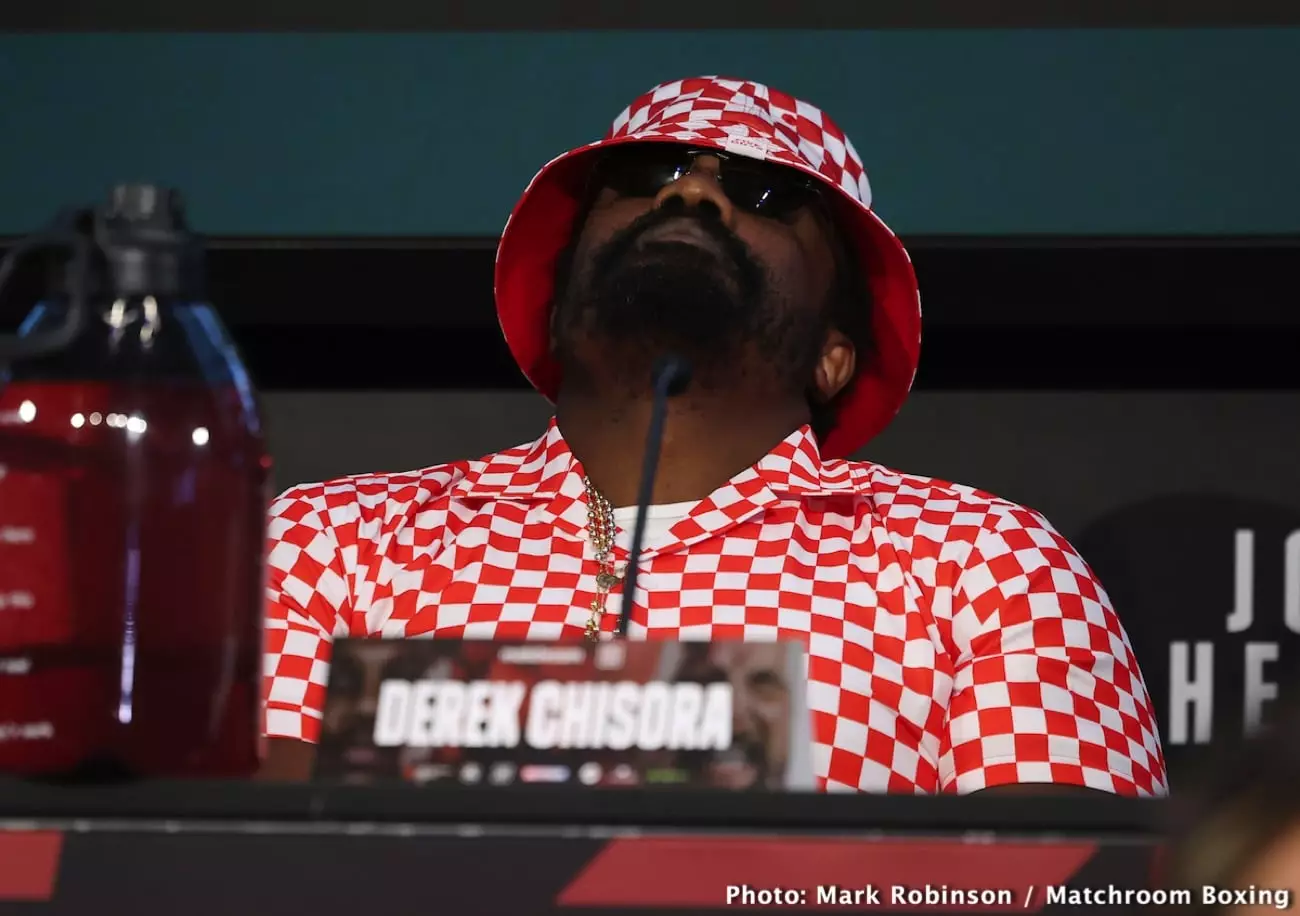Dillian Whyte’s recent outing against Ebenezer Tetteh has left fans questioning the heavyweight boxer’s viability at elite levels of the sport. At the age of 36, Whyte found himself in a fight that was expected to be an easy win, yet he struggled through the bout, leading many to conclude that his prime days may be far behind him. Observers noted his labored movements and inability to dodge even the most basic punches, indicating that he may be teetering on the edge of a career decline. Whyte appeared to lack the conditioning and finesse that once made him a formidable contender in the boxing ring; as he slumped to less-than-stellar performances, the specter of retirement loomed closer.
Despite the alarming indicators of decline, Whyte has expressed his ambition to continue fighting and has even voiced interest in facing high-profile opponents like Anthony Joshua and Tyson Fury in the upcoming year. However, many boxing analysts are skeptical about the feasibility of such matchups given his current form. Listings of potential opponents have emerged, including names like Martin Bakole and Johnny Fisher, but these suggestions evoke concern: a fight against either could very well result in another disappointing outcome for Whyte. While he still possesses a fanbase eager to see him in the ring, the reality is that top-tier fighters may overpower him without breaking a sweat.
Given the evident wear and tear on his body, a more reasonable path for Whyte’s career could involve participating in “seniors tour” type matchups against fellow contenders who are also past their prime. A third encounter with Derek Chisora, another veteran of the sport, would be a suitable and exhilarating option, allowing both fighters to showcase their remaining skills without risking matchups against fresher, more dangerous fighters. Such a contest could breathe new life into their careers while providing entertainment for boxing fans who cherish classic rivalries.
Instead of pursuing lofty goals that may no longer be possible, Whyte must consider a strategic approach to his future inside the ring. Fighting opponents of similar caliber could allow him to maintain relevance in the sport while avoiding the physical and mental toll of competing against the elite of boxing. Additionally, matchups with fighters like Joe Joyce—though also somewhat faded—could still provide compelling contests without the risk of catastrophic failure.
While the haunting thought of retirement may be difficult for Whyte, recognition of his limitations is essential if he seeks to salvage any potential future in the sport. Even accounting for external factors like rustiness or lack of training, the general consensus is that significant improvement is unlikely at this stage in his career. Therefore, it is crucial for Whyte to shift his focus towards realistic opponents who can provide a platform for a more dignified exit from boxing, rather than taking on challengers that could add further blemish to his already storied, yet sagging, legacy. The question remains: can Whyte successfully navigate this transition, or are we witnessing the final chapter of a once-promising career?

